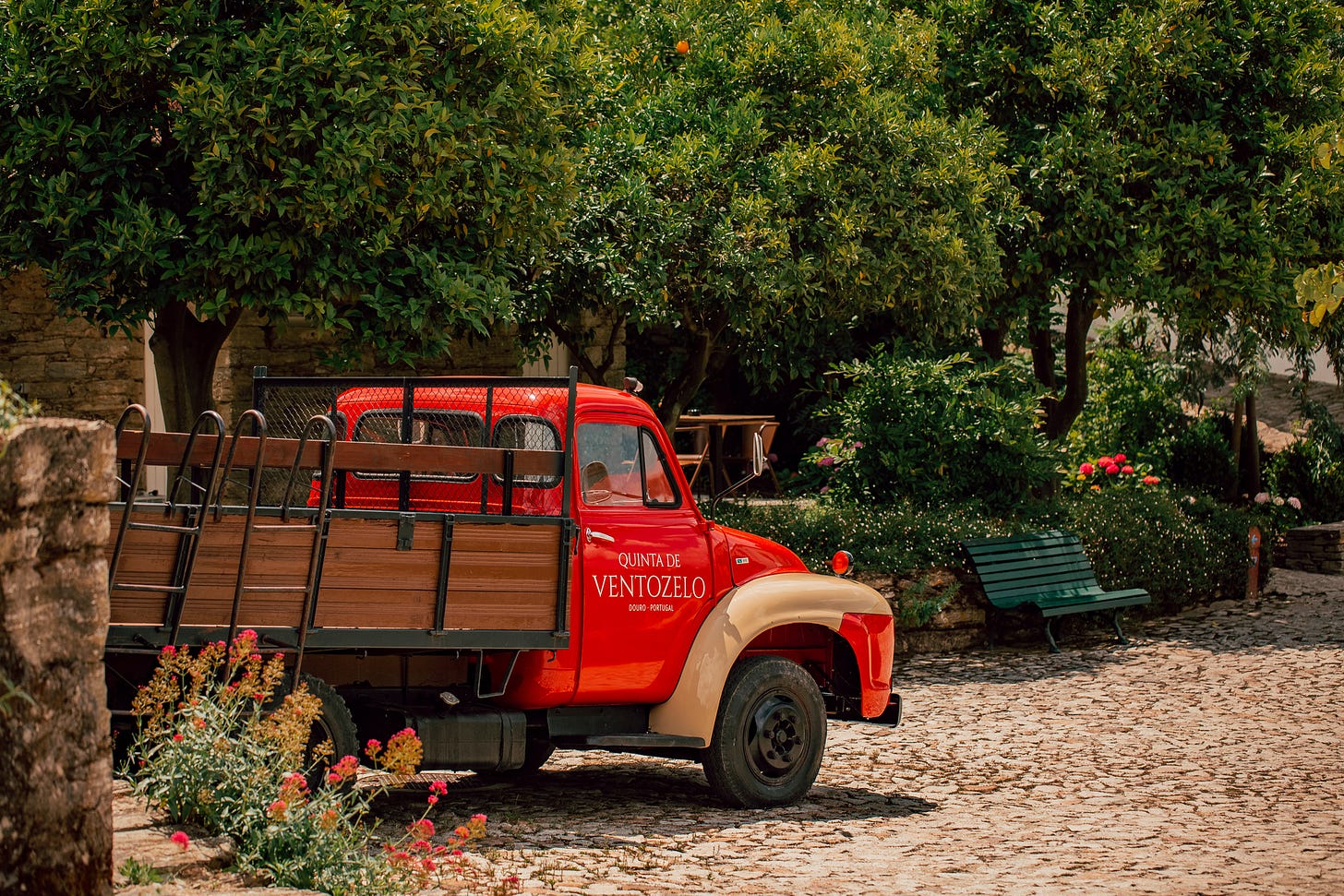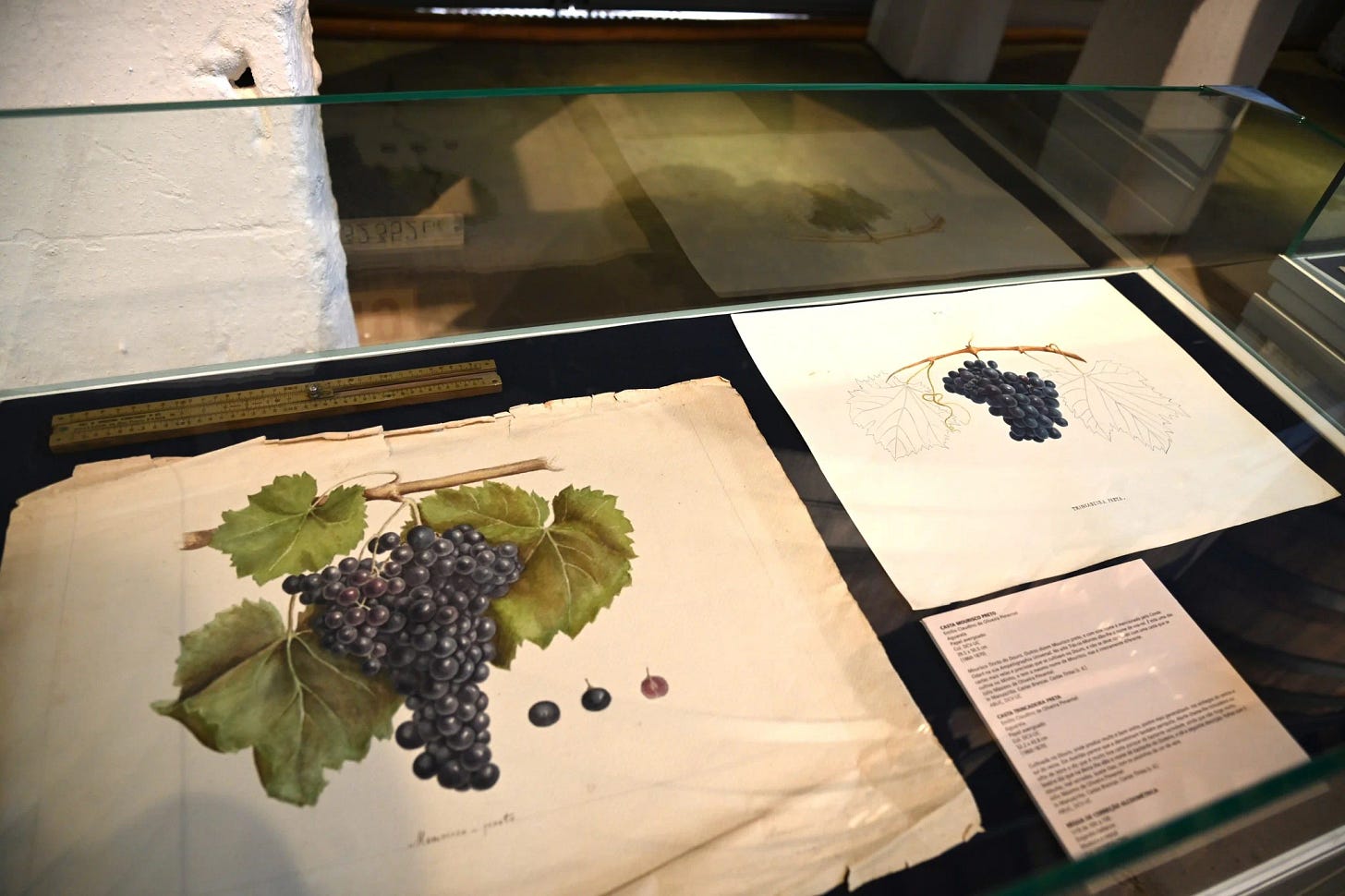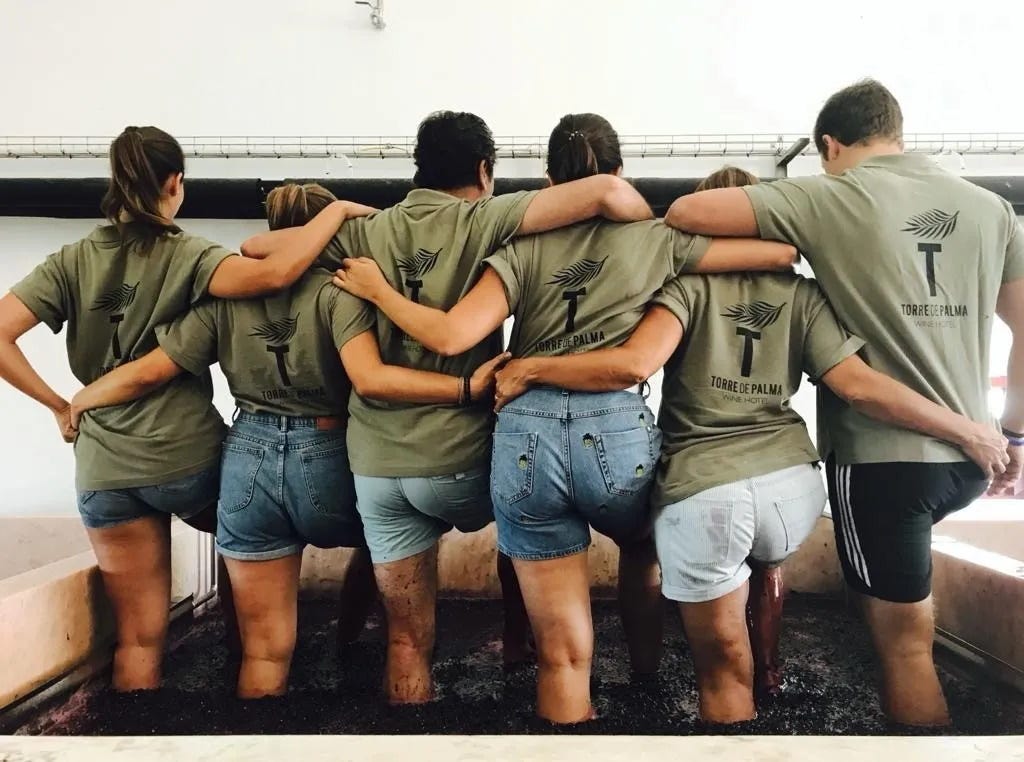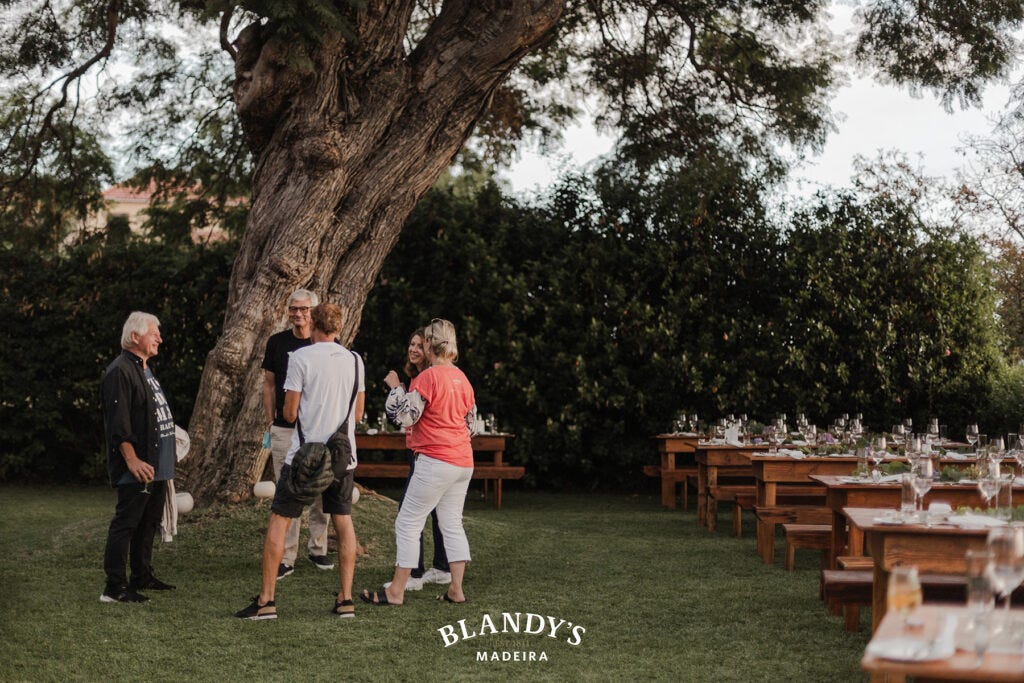Friday Briefing: Amazing Grapes
Good morning and welcome to PORTUGAL DECODED. Summer winds down with the flavourful bang known as harvest season. The perfect excuse for a deep dive into the world of Portuguese grapes. Saúde!
TALK OF THE TOWN

POLITICS
Chega abandoned the 2025 State Budget negotiations, the Socialists set out red lines and PM Montenegro said that they are “full of ghosts.” The Government set out a new round of meetings with parties for next Tuesday (More).
Doubts hangs over the Minister of Infrastructure’s ability to stay on the job and oversee TAP’s reprivatisation after a probe into TAP’s privatisation in 2015 - when he was also in charge of the process - revealed major illegalities (More).
SOCIETY
Two helicopters crashed this week in northern Portugal: the first one killing five GNR personnel and the second with no fatalities. The pilot and sole survival of the first crash said that ‘a medium-sized bird’ forced him to ‘take a diversion’ (More).
Police arrested a suspect in connection with the theft of eight computers from the Ministry of Home Affairs in downtown Lisbon. Authorities guarantee that no classified information was compromised (More).
ECONOMICS
Lufthansa CEO Carsten Spohr was in Lisbon this week to formally signal his company’s interest in the reprivatisation of state-owned carrier TAP Air Portugal (More).
Douro wine producers met with President Marcelo to plea for help as the region faces its worst crisis in years, due to falling sales, stock pile-ups and higher production costs (More).
CULTURE AND SPORTS
The Mozambican author Mia Couto has won the Guadalajara International Book Fair’s Prize for Literature in Romance Languages 2024 (More).
The Bank of Portugal launched a new collector’s coin to mark the 45th anniversary of punk-rock band Xutos & Pontapés. 29 renowned musicians and motorcycle racer Miguel Oliveira released a video singing one of the band’s biggest hits (More).
DECODER
What are the main indigenous grape varieties in Portugal?
Why is Portugal a Noah’s Ark of vines?
Portugal is home to hundreds of indigenous vine varieties— perhaps second only to Italy in number. It also has more old vines than anywhere else in the world. This means that it offers endless tasting opportunities for wine lovers and, most crucially, that it has an important role to play in the future of wine. If a vineyard is all the safer for its genetic diversity, then Portuguese grapes, many of which tolerate heat and drought well, offer hope for an industry particularly sensitive to climate change.
Are vines native to Portugal?
Wild grapevines (Vitis vinifera sylvestris) exist naturally in the Iberian Peninsula, especially in riverside regions. They may have been domesticated by humans and DNA tests have confirmed that there are significant differences between the wild vines in Iberia and those of Caucasian origin. However, modern vines in the Iberian Peninsula are probably the result of cross-breeding in the natural environment or human crossing between wild plants and cultivated varieties (Vitis vinifera vinifera) that were introduced to Portugal by ancient civilizations.
Which ancient civilizations?
Since 3,000 B.C. there is evidence of grapevine cultivation in the Iberian Peninsula by the Iberos and Celts. The Phoenicians, arriving around 1100 BCE, are credited with introducing cultivated varieties suitable for winemaking. The Greeks, who settled in the Iberian Peninsula in the 7th century BC, further developed the cultivation of vines. The vine growing culture continued to grow under the Romans and even throughout the Barbarian invasions. The first mention of viticulture in Portuguese territory appears in the 2nd century BC by Polybius and Strabo, stating that wine was a drink of the wealthier classes and was consumed on feast days.
Is it possible to trace the genetic origin of each variety?
With over 10,000 different varieties grown worldwide, it’s not an easy task. Even so, thanks to the huge German database Vitis International Variety Catalogue, scientists have revealed some curiosities: four grape varieties - Alfrocheiro, Marufo (or Mourisco) Amaral (Azal in Vinho Verde) and Cayetana Blanca (Spanish) - have yielded considerable offspring in Portugal; crosses between the same plants have given rise to different varieties, so there are several varieties out there that are sisters; and thirdly, there are several important national castes whose origins are unknown.
How many indigenous grape varieties are there exactly?
Recent reports indicate that Portugal has more than 300 wine grape varieties. In 2022, PÚBLICO reported that the country had 250 varieties, second to Italy in absolute terms.
Final disclaimer: I am partial to Setúbal wines and will politely pass on the Alvarinho. What about you?
TIPS OF THE WEEK
Penafiel
Harvest at Quinta da Aveleda
In the heart of the Vinho Verde region, the Quinta da Aveleda combines the grape harvest with a programme of films, live music and workshops: Vindim'art. The proposals are different every day and can include a mini wine course (Sep 8), the educational game Prova que Sabes (Sep 7), and a hat making workshop (Sep 7), a visit to the romantic gardens or the old winery. On September 8, there will be a traditional music concert by the groups Marotos da Concertina and Raízes Épicas. The most complete programme (from 3.30pm to 11pm on each of these days, €99) includes a harvest snack, a horizontal Alvarinho tasting, a dinner of traditional snacks and the traditional harvest soup.
São João da Pesqueira
Harvest at Quinta do Ventozelo
On September 14, the beautiful Quinta de Ventozelo opens up its harvest to everyone who wants to join in. The welcome begins at the estate’s mills, with the delivery of the harvest kit. Participants then take a Bedford van to one of the estate's vineyards. The traditional “mata-bicho” (mid-morning snack) will consist of onion broth and vegetable and wild boar covilhetes, accompanied by red wine from the grape variety that will be harvested, as well as a Quinta de Ventozelo Reserva Branco 2022. Before lunch at the Ventozelo cantine - which will feature a menu of regional flavours, with dishes such as pickled sardines, tomato salad with Douro ox heart, Viseu-style stew, as well as cheese and Port wine toast - there will be a visit to the Granvinhos winery in Alijó for a wine tasting. Prices: €175/adults and €80/children.
Alcobaça
Portuguese Grapes: the Emílio de Oliveira Pimentel Watercolors
Until October 13, the Alcobaça Wine Museum exhibits the remarkable work of Emílio de Oliveira Pimentel (1844-1880), who painted Portuguese grape varieties in watercolour. This important collection is believed to be the result of the artist’s graphic collaboration with his father, Júlio Máximo de Oliveira Pimentel, 2nd Viscount of Vila Maior. The exhibition is contextualised by original materials of historical and scientific importance, such as manuscript documentation of Júlio Pimentel's research into vine cultivation and models used in botany classes at Coimbra University at the end of the 19th century.
Palmela
‘Adiafa’ at Quinta do Piloto
The “Adiafa” is the name given to the end-of-harvest event, where producers and employees gather for a festive lunch. This tradition is preserved at Quinta do Piloto - known for its exquisite Moscatel and reds. The program begins with a welcome at the winery, the arrival of the last grapes at the wine cellar, the traditional handing over of the flag, a performance, a wine tasting with the winemaker and lunch at the winery. Tradition indicates that you must bring dishes and cutlery from home, just like in the old days. Prices: €45.00. Children 4-12 years old: €22.50. Prior reservation required: info@rotavinhospsetubal.com or +351 212 334 398.
Monforte
Harvest at Torre de Palma Wine Hotel
Until the end of September, the award-winning Torre de Palma Wine Hotel has a one-day or three-day grape harvest programme available. On the first day, the Hotel welcomes you to the estate with an exclusive dinner prepared by chef Miguel Laffan at the Palma restaurant, accompanied by selected wines. The second day includes a visit to the vineyards, where you'll learn about exclusively Portuguese grape varieties and pick the grapes by hand. After a visit to the winery, you’ll taste Torre de Palma musts and wines (a bottle of Basilii red wine is offered at the end of the programme). The stay can also include activities such as horse riding, a visit to the Roman ruins of Torre de Palma, spa treatments, stargazing or an agricultural workshop. There is also a short one-day programme with no overnight stay. From €84 (1 day) to €678 (3 days).
Madeira Island
Blandy’s Wine Festival
Until September 14, this festival, which is dedicated to all kinds of Madeira wines, will offer iconic and well-known activities such as the Presentation of the New Wines 2024, the prestigious All About Madeira Dinner, and well-established workshops such as ‘Winemaker for a Day’ and the Traditional Crafts sessions. The most eagerly awaited moments, include the Grape Treading and live music events. This year there will also be a workshop with renowned Chef Octávio Freitas and Head Sommelier João Barbosa, from the Michelin-starred restaurant Desarma. The event will also feature a special concert by the Madbrass5 quintet from the Madeira Classical Orchestra. More information here.
If you like this newsletter and want to say thanks, or encourage me to continue, buy me a coffee!










